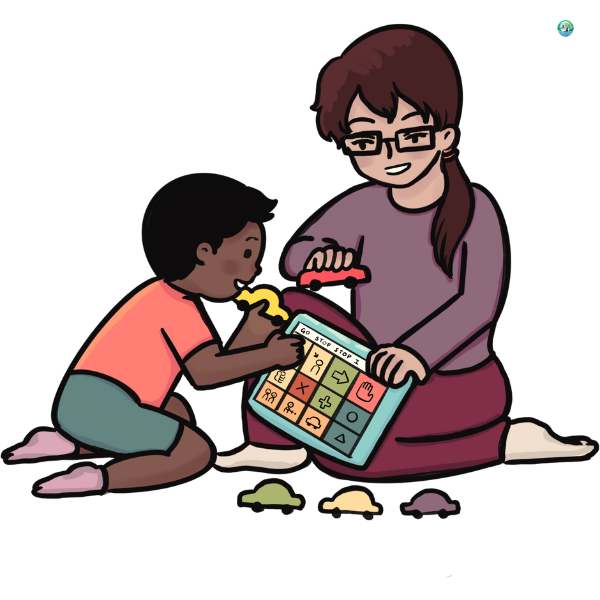
Dr Sathiya Ganesan’s
Through Play, They Heal, Grow, and Speak the Feelings Words Cannot
Gentle, Expressive Therapy That Helps Children Heal Through Play, Imagination, and Connection
Young children don’t always have the words to explain their fears, frustrations, or sadness. Instead, they communicate through behaviour, actions, and — most naturally — through play.
Play Therapy is a developmentally appropriate, research-backed method that allows children to explore emotions, express experiences, and resolve psychological conflicts in a safe, creative way.
Dr. Sathiya Ganesan, Consultant in Child and Adolescent Psychiatry, offers Play Therapy as a core part of emotional care for young children, helping them feel understood, regulated, and supported in their emotional journey.
Understanding Play Therapy
When Play Becomes the Language of Healing

Play Therapy is a form of psychotherapy that uses toys, stories, art, and games as tools to help children express feelings, improve emotional regulation, and develop problem-solving skills. It is especially effective for children between ages 3 and 12, where verbal expression may be limited.
Issues commonly addressed with Play Therapy include:
- Anxiety, fears, and phobias
- Trauma and grief
- Parental separation or divorce
- Behavior problems and aggression
- Sleep disturbances or nightmares
- School refusal or academic stress
- Social withdrawal or low confidence
- Attachment issues or adoption adjustment
In Play Therapy, toys become the child’s words, and play becomes their language for healing.
Signs a Child May Benefit from Play Therapy
- Sudden changes in mood or behavior
- Regression (e.g., baby talk, bedwetting)
- Aggression or defiance at home or school
- Intense clinginess or separation anxiety
- Sadness, irritability, or emotional shutdown
- Avoidance of social situations or fearfulness
- Trouble expressing or naming emotions
- History of trauma, loss, or family disruption
When emotional struggles surface as behavior, Play Therapy helps uncover and gently resolve the root causes.
What Happens in Play Therapy?
Dr. Ganesan creates a warm, child-friendly setting with:
- Art materials (drawing, painting, clay)
- Sand tray therapy
- Puppets, dolls, and role-play figures
- Storybooks, costumes, and imaginative tools
- Games designed to explore emotions and relationships
In this safe environment, children:
- Re-enact experiences symbolically
- Learn emotional vocabulary
- Build trust with the therapist
- Practice problem-solving and coping skills
- Work through internal conflicts at their own pace
Play is not just fun — it’s purposeful, therapeutic, and transformative.
Play-Based Approaches Used by Dr. Ganesan
Depending on the child’s needs, Dr. Ganesan incorporates:
- Non-directive play therapy – the child leads the session, expressing emotions freely
- Directive play therapy – the therapist guides the play to address specific challenges
- Cognitive-Behavioral Play Therapy (CBPT) – integrates CBT principles through play
- Trauma-informed play techniques – gently address fears, abuse, or loss through symbolic play
- Attachment-based play therapy – rebuilds trust and connection with caregivers
All sessions are age-appropriate, respectful, and designed to nurture the child’s emotional world.
Parental Involvement in Play Therapy
Play Therapy may be part of a broader care plan when a child also needs:
- Psychiatry for anxiety, ADHD, or mood issues
- Occupational therapy for sensory or motor delays
- Speech therapy for communication challenges
- Family therapy to address conflict or trauma
Dr. Ganesan ensures Play Therapy is integrated into a multidisciplinary, holistic treatment plan.
Secure Online Parent Consultations
While Play Therapy is best delivered in person, Dr. Ganesan offers online parent sessions to:
- Discuss progress
- Share home-based play strategies
- Guide parents in managing behaviors
- Plan for school reintegration or life transitions

Why Choose Dr. Sathiya Ganesan for Play Therapy?
With a deep understanding of child psychology, behaviour, and communication, Dr. Sathiya Ganesan offers a play-based therapy approach that is:
- Emotionally safe and non-judgmental
- Culturally sensitive and developmentally appropriate
- Focused on insight, regulation, and trust-building
- Designed to help children express and heal — without pressure
His sessions help children make sense of their feelings through play — and begin to thrive with confidence.
Let Your Child’s Play Lead to Peace and Progress
If your child is struggling to express emotions or facing emotional difficulties, Play Therapy may be the key to unlocking their inner world. Contact Dr. Sathiya Ganesan today to begin therapy that meets children at their level, with empathy, patience, and play.
Is Play Therapy only for very young children?
While ideal for ages 3–12, elements of play therapy can be adapted for older children with communication difficulties or trauma.
How long does Play Therapy take?
Progress varies. Some children respond in a few sessions, while others may benefit from longer support depending on emotional needs.
Will I be in the session with my child?
Typically, sessions are child-only to promote free expression. However, parents receive regular updates and guidance from Dr. Ganesan.
Is Play Therapy effective for trauma?
Yes. Play Therapy is a powerful tool for helping children safely process traumatic experiences they cannot yet verbalize.
Can we do Play Therapy at home?
While formal therapy must be guided by a professional, Dr. Ganesan shares techniques parents can use to create emotionally safe play routines at home.


